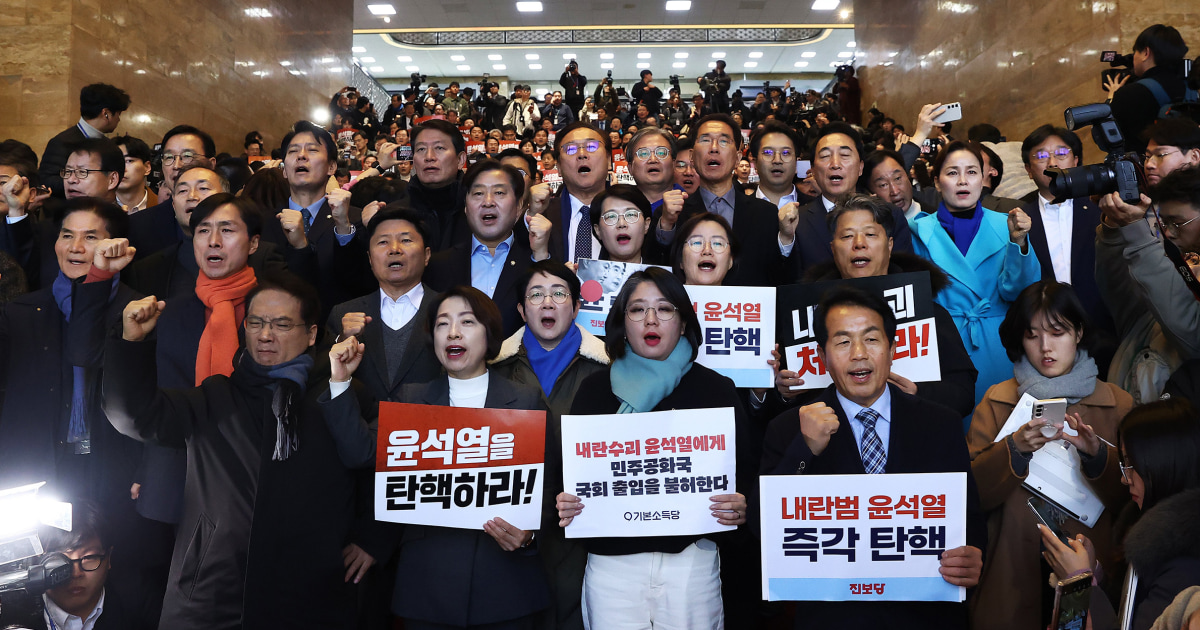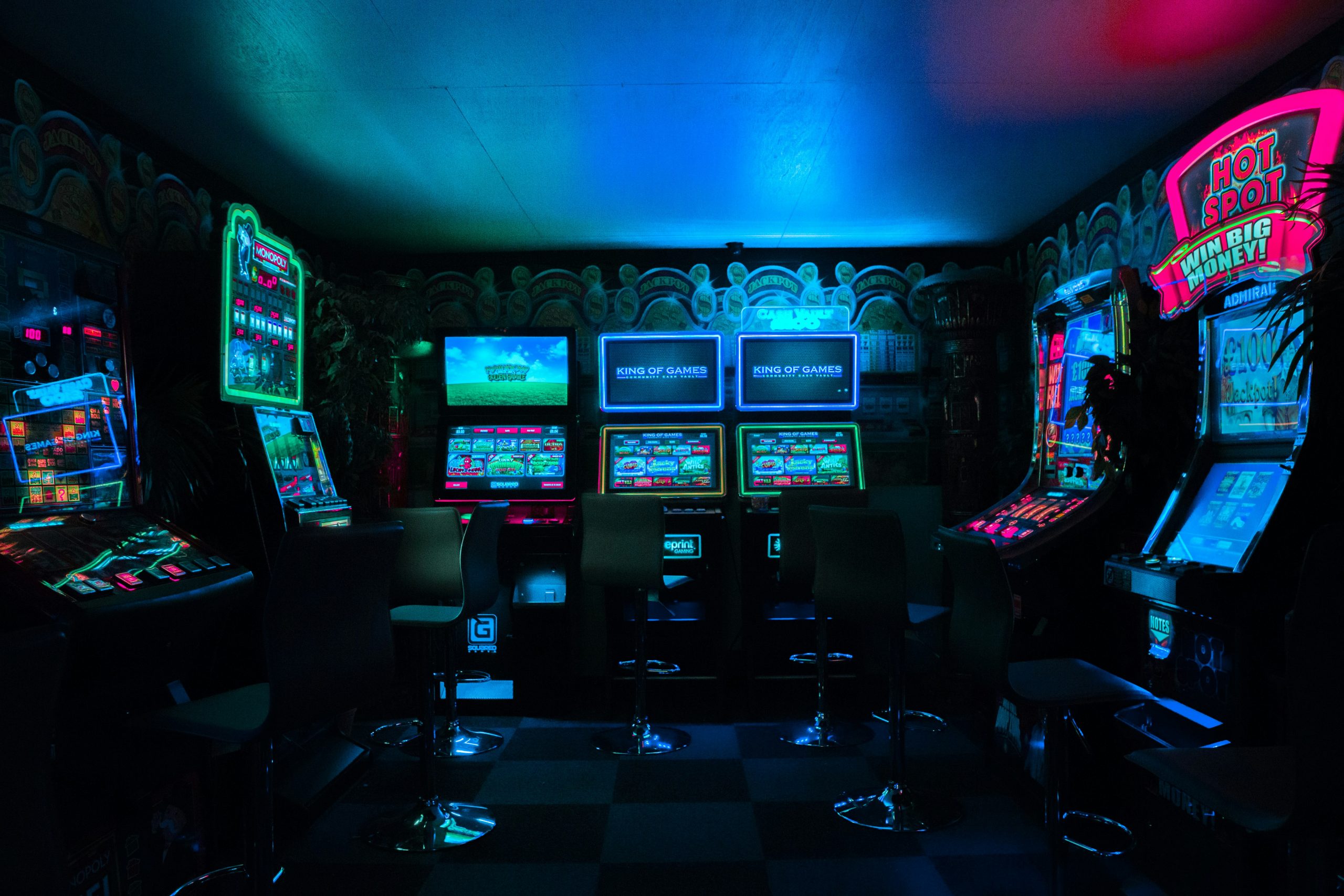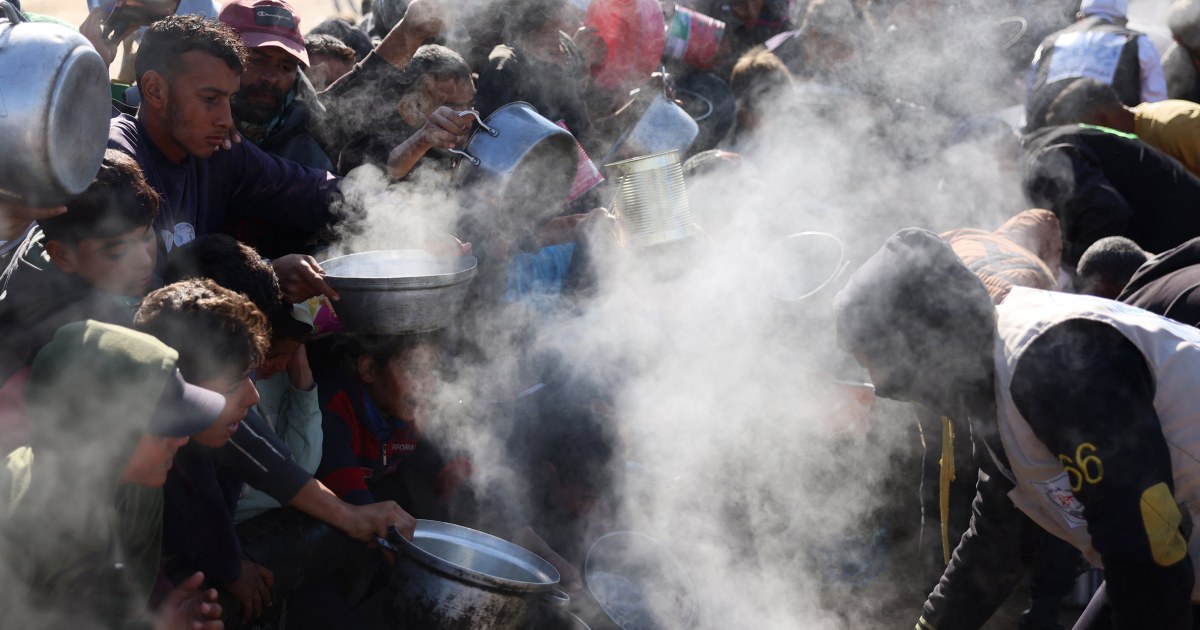World
Yoon should not remain as South Korean president, his party leader says

SEOUL, South Korea — The head of South Korean President Yoon Suk Yeol’s governing party on Friday signaled more openness to his removal as president for plunging the key U.S. ally into chaos with a short-lived declaration of martial law, reversing his position the day before an impeachment vote.
Han Dong-hoon, leader of the conservative People Power Party (PPP), had earlier said he opposed impeaching Yoon because it would only create more turmoil. But on Friday he said he had learned that Yoon ordered the arrest of prominent politicians in addition to declaring martial law, an order that was lifted six hours later after lawmakers voted to reject it.
“In light of these new revelations, I have come to the conclusion that it is necessary to suspend President Yoon from exercising his mandate to protect the South Korea and its people,” Han said, adding that Yoon was “not acknowledging his wrongdoings.”
If Yoon continues as president, Han said, “I fear that there will be a great risk of radical actions such as this state of emergency repeating, and he will put South Korea and its people in great danger.”
Han’s comments increased the likelihood that Yoon will be impeached when a vote is held around 5 p.m. local time Saturday (3 a.m. ET). The opposition bloc holds 192 of the unicameral legislature’s 300 seats, just under the two-thirds majority needed for the motion to pass.
The PPP, which repudiated Yoon’s martial law declaration, had asked him to leave the party but said earlier that it opposed the impeachment motion. Before Han changed his position, at least eight lawmakers from the PPP would have had to break with their party in order for it to pass.
Six opposition parties had proposed impeaching Yoon over the martial law order, which banned political activity and censored the media. If Yoon is impeached, he will be suspended from office until the Constitutional Court decides whether to uphold the motion, with a deadline of 180 days.
South Korean police and prosecutors are also investigating claims of insurrection and treason against Yoon, former Defense Minister Kim Yong-hyun, whose resignation Yoon accepted on Thursday, and Interior Minister Lee Sang-min.
The deeply unpopular Yoon, 63, whose approval rating was already at 19% before the emergency martial law, had blamed opposition lawmakers in his declaration, accusing them of paralyzing the government by seeking the impeachment of multiple government officials and slashing critical funding from next year’s national budget.
He also accused his opponents of sympathizing with nuclear-armed North Korea, a reclusive communist state with which the South technically remains at war.
Yoon has not made any public appearances since lifting the martial law order on Wednesday. On Friday, lawmakers at the National Assembly, which was swarmed by almost 300 martial law troops on Tuesday after Yoon declared martial law in a surprise late-night TV address, linked arms to block the entrance amid concerns that he might visit.
Opposition lawmakers have expressed concern that Yoon might declare martial law a second time if he is impeached or even earlier.
“I feel that danger is imminent tonight,” Lee Jae-myung, leader of the liberal opposition Democratic Party, said Friday. “I have a gut feeling that something might happen again tonight or early morning tomorrow.”
Acting Defense Minister Kim Seon-ho dismissed such concerns and said that even if Yoon made such an attempt, the Ministry of Defense and the South Korean military “would categorically reject it.”
Yoon’s special forces commander, Kwak Jong-keun, also said Friday that it would be impossible for Yoon to declare martial law again “because I will refuse to comply with any such order.”
Kwak was among three officers the Ministry of National Defense suspended from duty on Friday, along with Lt. Gen. Lee Jin-woo, head of the Capital Defense Command, and Lt. Gen. Yeo In-hyung, head of the Defense Counterintelligence Command.
The ministry also said it had requested overseas travel bans for 10 active-duty officers, including Kwak, Lee, Yeo and Gen. Park Ahn-soo, who as army chief of staff was named martial law commander. All four are accused of treason, the ministry said, adding that three brigadier generals and three commanders who were confirmed to have deployed soldiers made up the other six.
In a call Thursday with his South Korean counterpart, Cho Tae-yul, U.S. Secretary of State Antony Blinken expressed “deep concerns” about the martial law declaration and welcomed the lifting of the order.
“The Secretary conveyed his confidence in the democratic resilience of the ROK during this period, and noted he expects the ROK’s democratic process to prevail,” the State Department readout said, using an abbreviation for South Korea’s formal name, the Republic of Korea.
Blinken also reaffirmed the “ironclad” nature of the U.S. alliance with South Korea, which it views as an important bulwark against North Korea, China and Russia, and which hosts almost 30,000 American troops.
The U.S. confirmed Thursday that meetings of the U.S.-South Korea Nuclear Consultative Group and related tabletop military exercises that were planned in Washington this week had been postponed amid the turmoil in South Korea.
Politicians ordered arrested
Meanwhile, more details emerged of the chaotic hours between Yoon’s declaration of martial law around 10:30 p.m. local time Tuesday and the lifting of the order around 4:30 a.m. Wednesday.
Hong Jang-won, deputy director of the National Intelligence Service (NIS), told lawmakers on the National Assembly’s Intelligence Committee that Yoon had told him to arrest key politicians, Democratic Party lawmaker and committee member Kim Byeong-gi told reporters.
They included Lee Jae-myung, the party’s leader, and Yoon’s rival in the 2022 presidential election; Woo Won-shik, speaker of the National Assembly; Han, the leader of Yoon’s own People Power Party; and Kim Ou-Joon, a journalist who has been critical of Yoon, along with other opposition leaders, a former Supreme Court justice and a former Supreme Court chief justice.
“Hong said that such a directive was ridiculous,” Kim said, “and although the key leadership meeting at the NIS was held, the meeting ended without a conclusion.”
Hong was later contradicted by his boss, NIS director Cho Tae-yong, who told reporters that Yoon gave no such direct order.
Yoon’s office has not commented on the allegations.
The accounts by military officers and government officials may have played a role in the PPP’s changing position, said Eun A Jo, a postdoctoral fellow at the Dickey Center for International Understanding at Dartmouth.
“I think given that kind of evidence, it’s difficult for the ruling party to protect Yoon,” she said. “So you are seeing more people kind of turning their backs.”
South Korea’s National Election Commission said Friday that after the martial law declaration on Tuesday, about 300 troops infiltrated its headquarters and related facilities in what the commission called “a clear violation of the Constitution and the law.”
The soldiers confiscated the mobile phones of five people on duty and restricted access to the premises, the commission said, occupying its headquarters for about 3 hours and 20 minutes.
“While it has been confirmed that no internal materials were taken by the troops thus far, a thorough and continuous review will be conducted to verify any potential damages,” the commission said in a statement.
Kwak, the special forces commander, said some units at the National Election Commission stayed in their vehicles while others “secured and guarded the external perimeter as instructed.”
He said they were in the area for about 20 minutes and then moved to withdraw when Kwak issued an order to halt operations at 1:09 a.m., around the same time lawmakers voted to reject the emergency martial law and ordered soldiers to leave the legislature in central Seoul.
Kwak said that no one entered the premises, and that there were no plans to detain or obstruct commission personnel.
“Basically, I halted the mission before any actions were carried out,” he said.
Brig. Gen. Lee Sang-hyun, commander of the Special Warfare Command’s 1st Airborne Special Forces Brigade, told South Korean media that his unit had been ordered to enter the premises of the National Assembly and evacuate personnel “without knowing whether this was a military situation or a terrorist threat.”
Lee said he concluded it was unlikely to be a terrorism scenario and told his troops not to carry live ammunition.
He said his unit had “worked tirelessly to shed the stigma” of past military intervention in politics, including its role in a 1979 insurrection.
“Are we to bear the disgrace and stigma of such dishonor once again?” he said.
Stella Kim reported from Seoul and Jennifer Jett from Hong Kong.








